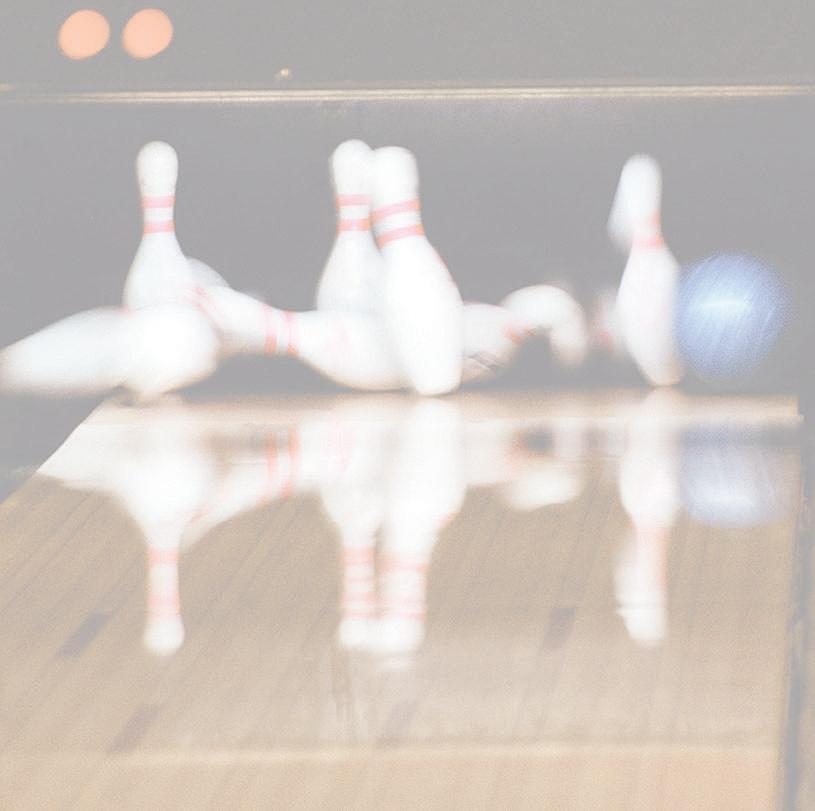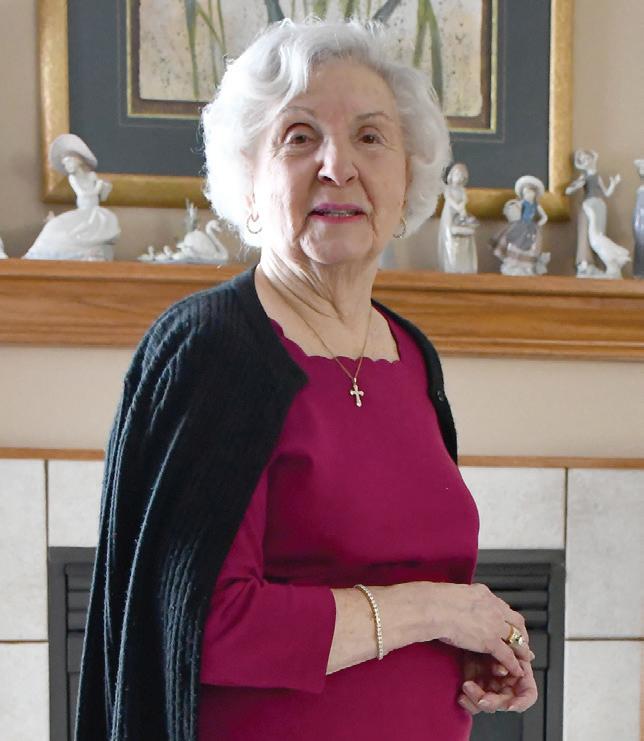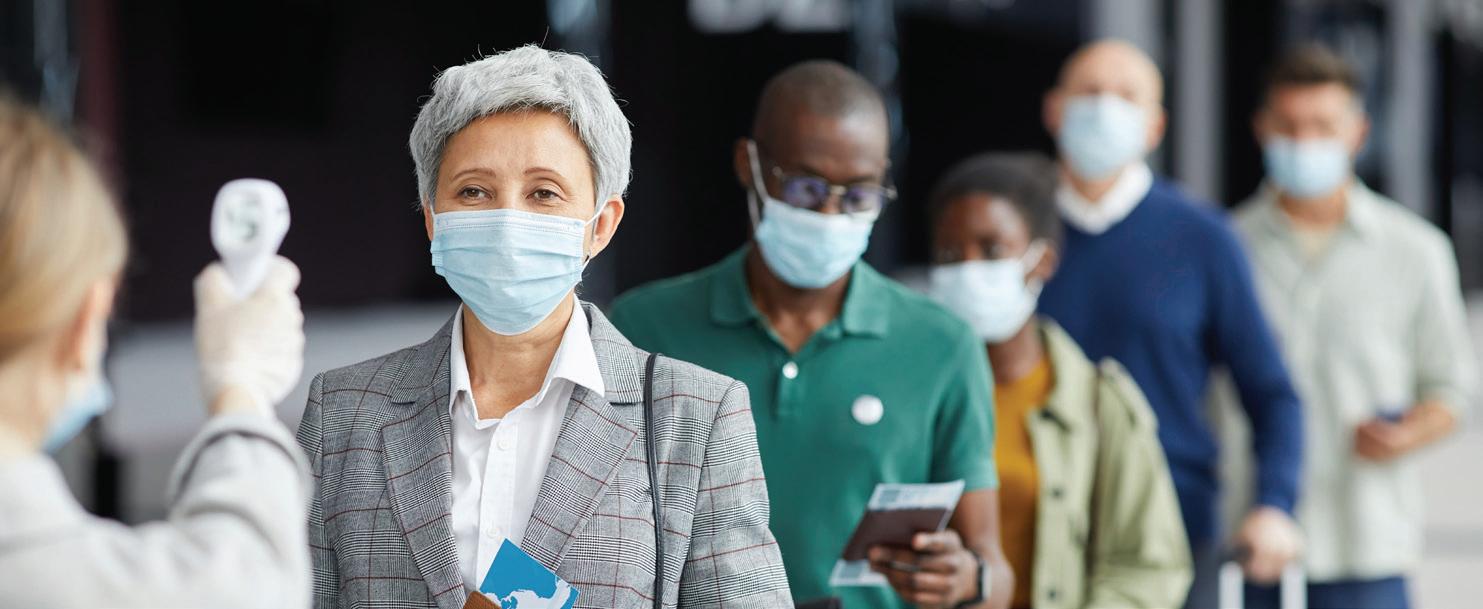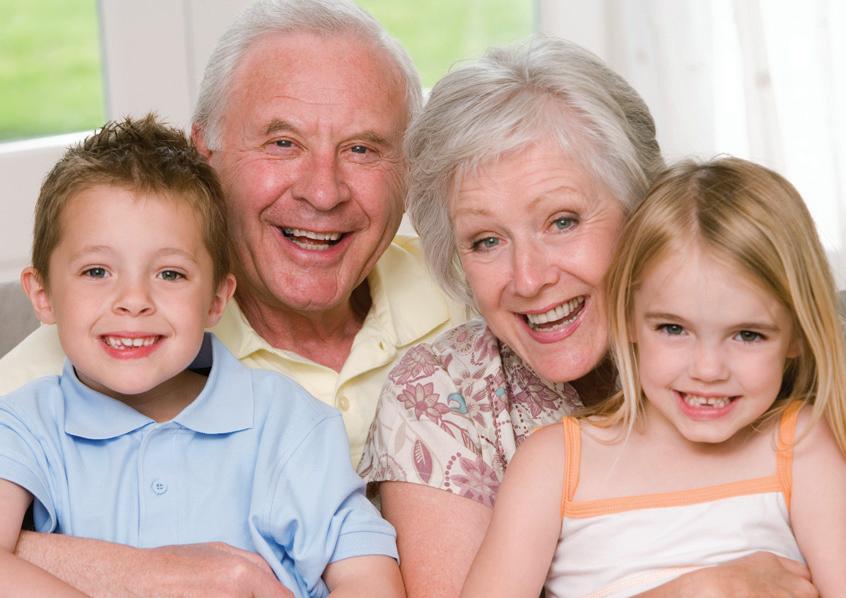
13 minute read
Great Gift Ideas: For Valentine’s Day
Unified Newspaper Group February 2021 Young at Heart 11 GIFTS THAT SPEAKIFTS THAT TO ONE’S HEART

Advertisement






Nothing says love like
UP To 40%* Storewide Savings!


*Some exclusions apply. See store for details.

139 E Main, Downtown Stoughton 873-3529 Shopds.net Tu-F 10am-530pm, Sat 10am-2pm
adno=204435 Make 2021 the Year of Wellness and Selfcare - Something we all need!

Soleil’s services are stress relieving, detoxifying and immune boosting. Give and Get Some Love with Soleil’s LOVE Month Specials!
Check out our website and FB page for details and special promotional discounts. Massage & Bodywork | IR Sauna and Bodywraps Halotherapy | Red Light Skin Renewal Therapy Ion Footbath | BioMat | Tanning - Get Some Vitamin D! We also have ready-made Gift Baskets from our Essential Organics Boutique or create your own, add a gift certifi cate for a truly specialized gift!
Valid through the month of February.
adno=204258
www.Soleil-Spa.net | 608-835-2544 | 130 N Main St, Oregon WI 53575
Take a step back in time for a Valentine’s tradition

Greeting cards are popular ways to express love and affection on Valentine’s Day. However, those looking to say “I love you” and much more in a creative way may want to harken back to a tradition that is several centuries old. Purse puzzles were once an innovative way to send notes and illustrations and express other sentiments. Purse puzzles became popular around 1720 and remained so until roughly 1840. The puzzles consisted of a sheet of paper folded into smaller parts. When unfolded, the purse puzzle would reveal several messages and hand-drawn art. In the 19th century, purse puzzles were a clever way for lovers to send love notes on Valentine’s Day or other times of the year. Purse puzzles were a form of paper art, similar to origami. Valentine’s celebrants can rekindle the magic of purse puzzles to add creative fl air to this year’s celebrations. They can be made easily with tutorials found on websites such as Snapguide.com (https://snapguide.com/guides/makepuzzle-purses/). The fi nished puzzle will take a square shape and open up like a pinwheel until the full sheet of paper is revealed.

adno=202491
Trenton, a Maltese/shih tzu, helped CarolAnn McArdell of Verona get out of the house and socialize when she moved there alone following a divorce and lost job.

Building bonds during tough times
Dogs proving to be more than pets for aging adults, offering solace through isolation, job loss, health concerns
Story by Neal Patten - Photos submitted
Empathetic, funny, smart, inquisitive, lovable, loyal, willing to please, great cuddlers – many of these traits are what people look for in companions – including the fourlegged variety. These are all ways some Dane County seniors described their dogs to Young at Heart magazine. Several of them said their dogs are not just pets, but rather friends. Research demonstrates the most serious disease older individuals face isn’t cancer or heart disease – it’s loneliness. Dogs can help combat loneliness, providing seniors with love and affection, reducing depression and easing the pain of the loss of friends and loved ones. They also provide physical benefits and social
opportunities for seniors. Interacting with a dog has even been shown to lower blood pressure. Owning a dog also offers seniors a renewed sense of purpose, as they have something to focus on other than themselves. Depending on the senior, dogs can fill the void of the loss of a loved one or provide connection in isolation. For others, dogs provide energy and joy at home that are welcome distractions from job loss, divorce or other problems, including the frustrations of the COVID-19 pandemic. Above all, dogs can be a source of therapy for folks in their golden years. Many seniors have discovered the physical and mental health benefits of dog ownership, as their companions have helped them through personal struggles. When Fey Ferrington recently moved to a new condo in Madison, she adopted a little Chihuahua and Jack Russell terrier mix to help provide some companionship as she adapted to her new surroundings during the pandemic. “It’s been shown experimentally that petting a dog is almost akin to a meditative exercise. It’s shown to reduce people’s blood pressure,” she said. “With what’s going on in our day and age, we need something warm and responsive.” For David and Mary Neuhaus of Madison, 74 and 71 years old respectively, their traveling retirement lifestyle took a hit when the pandemic hit home last March. They hadn’t owned a pet in years, but they found that during the quarantine, they missed that relationship, so they adopted a Yorkshire terrier that’s helped give them a more active lifestyle. CarolAnn McArdell had to put down her beloved Maltese/ shih-tzu last year. After the two formed strong bonds when she moved to Verona to start a new Continued on page 14
Seeing the benefits firsthand

When Angela Corell of Oregon was a nursing assistant at Oregon Manor, it would often host visits with dogs and puppies before the COVID-19 pandemic. Residents’ moods would inevitably change for the better right away, she said. “Everyone would get an instant smile on their face when they would see a dog come their way, and they would talk about it for days,” Correll said. “They would tell me that it made their day. “Even the rather grumpy residents would do a complete 180 and would be grinning from ear to ear when we would have dogs there.” She and several others Young at Heart magazine spoke with have seen firsthand how visits from pets, especially for those in assisted living facilities, can be rejuvenating experiences for both mind and body. Jessica Pence of Stoughton saw “amazing things” happen when she used to take her dog to nursing homes to interact with residents. “People whose fingers were so bound up due to arthritis (were) able to spread them out to gently touch the pup,” she said. “Dogs and any humans, but especially the seniors, do amazing things together.” Sometimes, those amazing things happen in the minds of seniors dealing with the effects of aging. Colleen Knudson, director of activities at Attic Angel senior living community in Middleton, has found animals to be one of the greatest ways to connect with people with dementia. She said she’s seen people who typically don’t talk or who haven’t talked in a long period of time come alive and speak, moving and reaching out to pet the visiting pooches. “What absolutely blows my mind is it seems to bring people back to their long-term memory and feelings of comfort and love,” Knudson said. Attic Angel has also hosted cats, rabbits, llamas, alpacas, baby goats and even a zebra, and she said not being able to let animals in during the pandemic has been challenging. Still, she’s been thinking virtually, hosting video calls with animals and residents. “People love animals, and it provides this mental wellbeing needed now more than ever,” Knudson said. “They’re still talking about the animals later in the day or the next day – which is amazing. They usually don’t retain memories that long.” Artie Berning helps train pet owners to bring their furry friends into nursing homes and assisted living facilities across South Central Wisconsin. The president of Dogs On Call, Inc. and 17-year member, she has not only employed her dogs as a way to cheer others up, but also as physical support in her home. “I’d be lost without a dog,” she said. The soon-to-be octogenarian has had both hips replaced, and said being able to lean on her big dogs over the years – a Newfoundland and a golden retriever – helped with her recovery. “It still amazes me how just petting my dog can make someone feel so much better -- you can literally see the blood pressure go down on a machine,” Berning said. ““Many, many times, you hear, ‘You just made my day, when are you coming back?’” And despite its name, Dogs on Call volunteers also bring cats, pigs and mini horses to meet-and-greets, though in recent months, window visits have had to suffice for lonely seniors in assisted living facilities, she said. “Do we change people’s lives? No,” Berning said. “Do I see how it makes people’s lives better for a little while? Absolutely.”
14 Young at Heart February 2021 Unified Newspaper Group BUILDING BONDS from page 13
life after a divorce, she said she never expected to become so attached to a pet. Oregon’s Gwen Maitzen found out how much her pets -- particularly her Chihuahua/dachshund mix named Rosie -- helped her during her recovery from cancer in the past few years. The furry friends kept her in a positive mood, even during her darkest days. And over her 88 years, Madison’s Ethel Dunn has owned dogs, rabbits, a horse, guinea pigs, raccoons and a snake. But before breaking bones for the first time in her life, she’d never had a therapist in an animal. Now, “Baxter” -- her sixth poodle -- is helping her recover physically and mentally. “This poodle has been my best friend as I get older,” she said.
Pandemic canine companions
Married for 50 years, David and Mary Neuhaus adopted a Yorkshire Terrier named Snickers from Underdog Pet Rescue in Madison in September. He’s their fourth dog, but their first in 11 years – a realization that surprised them. Around the time their last dog Freckles died, they retired and began to travel across Europe. But last spring, as the COVID-19 shutdown started changing lifestyles, they felt the timing was right for another canine companion. “With the pandemic not going away fast, we just thought we needed something else in the house,” Mary said. “Being closed in, not being able to travel or see the kids – Zoom only goes so far – we wanted to expand our horizon.” David said he’s now waking up at 6:40 a.m. to feed and take Snickers for a walk. Snickers loves to play, David said, which has gotten him exercise he otherwise wouldn’t have been getting, walking around the block twice a day and going to dog parks. “I look forward to it, and he looks forward to it,” David said. “He’s made a tremendous difference in our lives, it’s great to be invested in something. He brightens up so much of our life.” Ferrington, 83, said there’s been a lot of change and instability in her life over the past year including moving homes and her previous dog dying. So, she adopted Luz, a Chihuahua and Jack Russell terrier mix, from a shelter in Sauk County to help provide some companionship during the pandemic. “What she has meant to me is something to focus on other than me,” Ferrington said. “Especially with the virus going on, we’re forced to isolate ourselves more than one might ordinarily.” While she has a lot of friends, she said she’s not been able to see them lately except on video calls. But animals are great cuddlers, she said, and for those in isolation, they’re always there – providing continuity, closeness and mutual caring. “If you love them, they love you,” she said. Luz’s presence serves as a vital function for Ferrington’s wellbeing, she said, noting that Luz is Spanish for light. Ferrington calls her canine companion the light in her daily life “When you have a creature dependent upon you, it calls forth strength in you – to meet your responsibility to another creature,” she said. “They keep you engaged with the world and resisting the temptation to become increasingly involved with what you feel and what you’ve lost. “You can’t just slouch around and feel sorry for yourself.”

Snickers, a Yorkshire terrier, has proven to be a spirited addition to the home of septuagenarians David and Mary Neuhaus of Madison, who adopted him during the COVID-19 pandemic.
Improving social lives
At the end of last year, McArdell had to put down her faithful companion of over a decade – Trenton, a Maltese/shih-tzu. McArdell, 69, had moved to Verona in 2012, on the heels of both a divorce and job loss in 2011, and formed a strong bond with her pet during that time. “I didn’t realize how much of an impact
he had made on my life,” she said. “You kind of grow into that. Never in my life did I expect to be so attached to an animal as I have become. The older I get, it’s been a very interesting, awakening experience.” McArdell said as an introvert, it was easier meeting new people after moving because of Trenton. She said Trenton got her out of her apartment for more walks and meeting people through his companionship. When she’d teach art classes at the Verona Senior Center, he’d stop by every door to meet everyone – jumping up on their laps and looking up at them with his big, brown eyes.
“It was more than just filling loneliness and time,” she said. “He was instrumental in getting me socialized in this community.” She had gone two years without owning a dog before Trenton, but after she lost her job and went through a divorce, she said it was just the right fit. “They cuddle up even more when you’re going through tough times,” she said. “It’s uncanny the way pets do those things.”
CarolAnn McArdell
Support for survivors
For Maitzen, 64, her Chihuahua/ dachshund mix (Chiweenie), Rosie, has been an important part in her recovery from cancer, as have a Pomeranian named Petey and a cat named Dirk. In 2017, Maitzen was diagnosed with multiple myeloma, a form of bone marrow cancer. It led to two fractured vertebrae and a compressed vertebra in her spine, and she couldn’t bend over. As such, she couldn’t take care of Sammy, her 18-year-old Shih Tzu, and had to give him up. And just before she was diagnosed, her beloved dog Ivan – a Keeshond – got cancer and died, which was heartbreaking, she said. That wasn’t all she lost that year. Her husband divorced her and she had to rehome her pet goats, as she had lost the strength to lift the hay bales to feed them. Her outlook on life wasn’t all that great, she said, but in early 2018, she had a stem cell transplant, and in recovery, decided to adopt a dog from Fetch Rescue of Verona. That’s when she got Rosie, who was
Continued on page 21
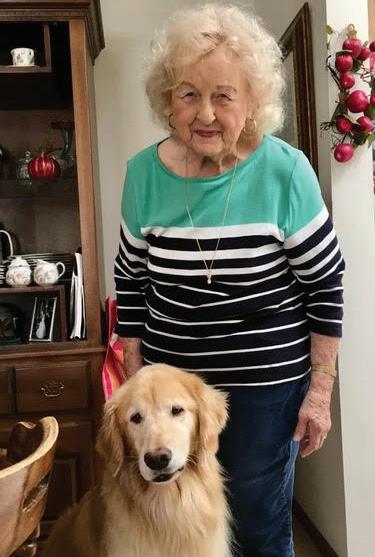
Visits from the pets and handlers of the Dogs on Call organization can bring smiles and lasting memories to residents of nursing homes and assisted living facilities. Seen here, Samantha, a golden retriever, is visiting Jayne at the Old Middleton Center in 2019.

